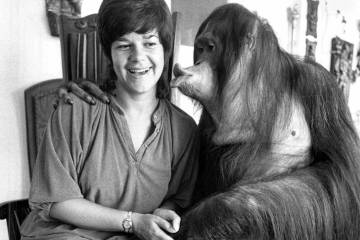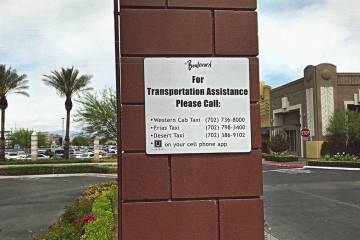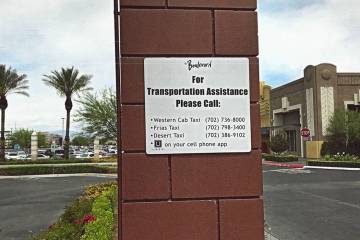Focus on fairness marks judge’s distinguished career
There are two undisputed facts about Senior U.S. District Judge Philip Pro. He is one of the best on the bench, and he never needed a microphone.
In a world of mushy mumblers, his voice boomed. He spoke with authority and performed his job with integrity. He was detail-oriented. You never saw him dozing on the bench. He was never involved in scandal. No one whispered he’s outlived his usefulness.
But Monday, he announced he will fully retire. He won’t have chambers. He won’t go to the Lloyd George U.S. Courthouse. He is actually retiring Jan. 16, after 34 years on the bench as a magistrate and District Court judge.
Pro took senior status in January 2012 to make way for another judge. Senior judges can retire at full pay and do as much, or as little work, as they like. When Pro took senior status in January 2012, he continued a heavy workload. When his replacement, Richard Boulware, was sworn in June 12, Pro began planning his next transition — full retirement.
Actually, he’s retiring from his judicial job. Nearly 68, this high-energy judge won’t completely retire. But he doesn’t know what his future holds because it’s tough for a sitting judge to talk about job opportunities until he is completely retired from the judicial system.
When he became a U.S. magistrate in 1980, he was 33, among the nation’s youngest magistrates. He had moved to Nevada in 1972, and his experience was balanced and diversified. His career included jobs as a public defender in Clark County, a federal prosecutor, private practice and a deputy attorney general for the gaming division.
He was a magistrate for seven years until 1987 when U.S. Sen. Chic Hecht, a Republican, nominated then-Democrat Pro for a district judgeship, opting for a quality candidate instead of political patronage.
“I would go to work every day and focus on being fair,” Pro said, comparing his job with a journalist’s.
His varied jobs gave him in a front-row seat during a colorful period of Nevada’s history. As a deputy attorney general, he was active during the era when gaming regulation was cracking down on the mob. As a magistrate judge, he oversaw pretrial work in a criminal case against the late mobster Anthony Spilotro. When Spilotro went missing, Pro signed the arrest warrant, before learning of the mobster’s murder. As magistrate, Pro handled the complex civil litigation of the Nov. 21, 1980, fire at the MGM Grand, which caused the deaths of 87 people.
As a trial judge, he handled the lawsuit Navy Lt. Paula Coughlin filed against the Tailhook Association and Hilton Hotels Corp. after her sexual assault in a Las Vegas Hilton hallway during the 1991 Tailhook convention. Pro allowed testimony of prior out-of-control Tailhook conventions, and a jury awarded her $5 million.
Cases involving Bob Marley’s music and environmental cases involving Area 51 and the Nevada Test Site were among the thousands of cases on Pro’s docket.
Some of these names mean nothing to today’s young lawyers who lack Pro’s historical perspective.
Pro recalled a drug case involving firearms. When picking a jury and asking about attitudes about guns, one woman was particularly upset. At a sidebar, she said that as a young woman she had had a terrible experience at Kent State University.
Pro realized she was Mary Ann Vecchio, the 14-year-old in the Pulitzer prize-winning photo bending over a student who had been shot in 1970 by the Ohio National Guard during an anti-war protest. She had married and moved to Las Vegas.
The judge excused her and told the young attorneys involved in the case who she was. They hadn’t heard of her.
Pro’s priorities are consistent: his family, the law and education.
He was involved in the founding of the Boyd School of Law at the University of Nevada. He was instrumental 27 years ago in founding and leading the local We the People … the Citizen and the Constitution Program to boost high school students’ knowledge of the Constitution. Starting in 1998, he became involved in traveling worldwide to teach “Rule of Law” programs in more than 20 developing countries.
Pro isn’t sure what he will do next but knows it will involve some activity in the Nevada legal community, hopefully something that will extend the career which has “provided me with a lifetime of professional and personal fulfillment.”
The next chapter of Pro’s professional life remains unwritten, but when he fully retires from the bench in January, there should be a world of new opportunities for a man with a reputation for integrity and fairness … one who can always be heard above the fray, whether a courtroom or a classroom.
Jane Ann Morrison’s column appears Thursdays. Email her at jmorrison@reviewjournal.com or leave a message at 702-383-0275. Follow her on Twitter @janeannmorrison.






















